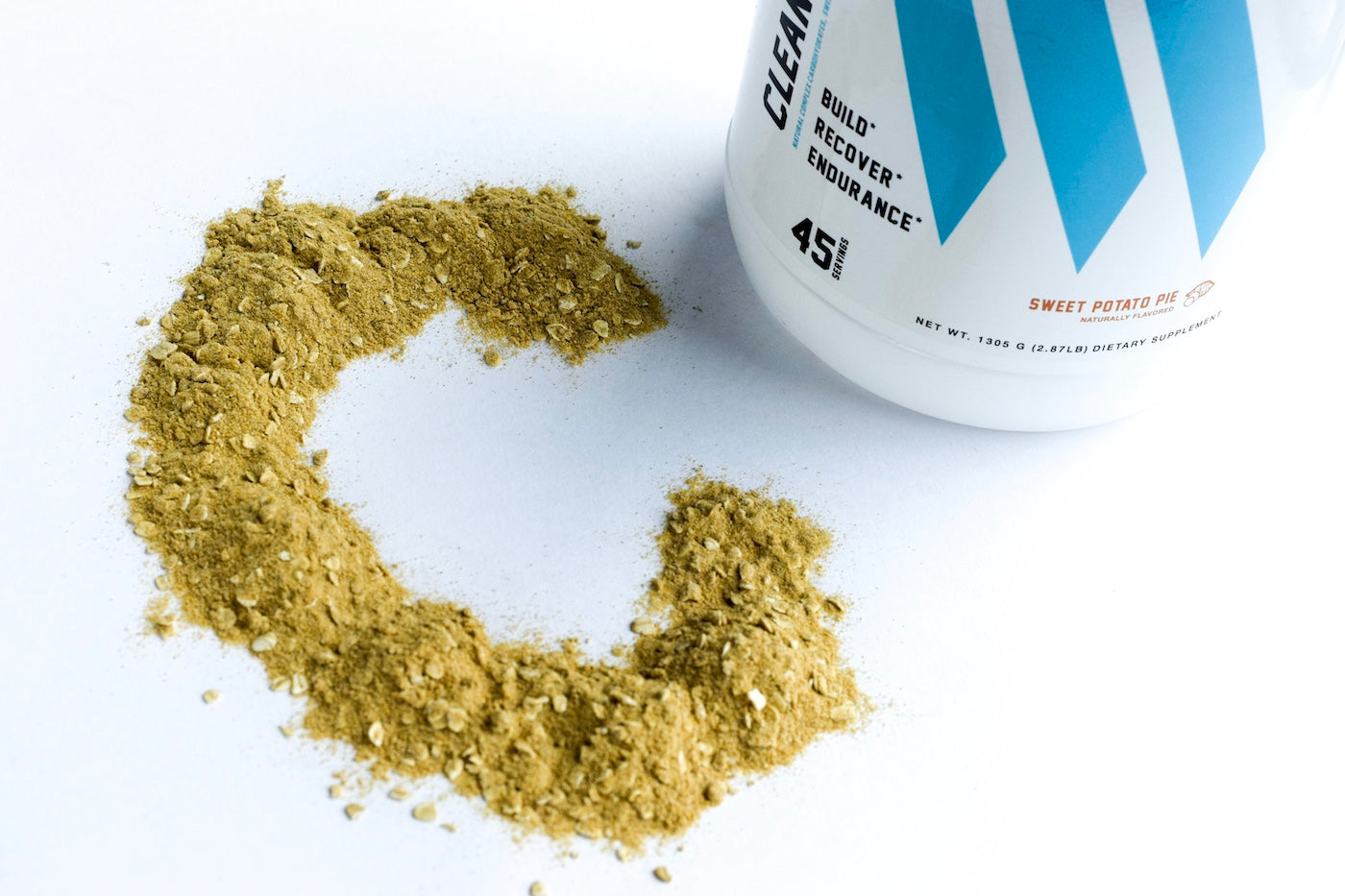Are you always on the lookout for ways to boost your energy levels and maximize your performance? Look no further! In this article, we will uncover the best glycogen foods that can help you refuel and recharge your body.
Glycogen is the storage form of glucose, which is the primary source of energy for our muscles. When we engage in intense physical activities, our glycogen stores get depleted, leading to fatigue and decreased performance. That's where glycogen foods come into play.
Whether you're an athlete, a fitness enthusiast, or simply someone who wants to maintain their energy levels throughout the day, incorporating glycogen-boosting foods into your diet is essential. From whole grains and sweet potatoes to bananas and oats, we will explore a variety of natural and delicious options that can replenish your glycogen stores effectively.
By choosing the right glycogen foods, you can fuel your body with the energy it needs to excel in your workouts, sports, or daily activities. So let's dive in and discover the best glycogen foods to refuel your energy and unleash your full potential!
Understanding Glycogen and Its Role in Energy
Glycogen is a complex carbohydrate stored in the liver and skeletal muscle that serves as a primary fuel source during exercise. After consuming carbohydrates, the body converts excess glucose into glycogen, which is then used during periods of increased energy demand.
During exercise, particularly high-intensity or prolonged activity, glycogen becomes the go-to energy source. When stores are depleted, performance suffers and fatigue sets in.
“Muscle glycogen is the predominant fuel during moderate to high-intensity exercise.” – Ivy, Journal of Sports Sciences
Glycogen storage capacity depends on:
-
Dietary intake
-
Training status
-
Muscle mass
Trained individuals can store more glycogen and utilize it more efficiently—making it critical for endurance athletes, strength trainers, and anyone with a physically demanding lifestyle.
Importance of Refueling Glycogen Stores
Following a workout, glycogen stores are depleted, especially if the session involved endurance or resistance training. Refueling is crucial for:
-
Recovery
-
Performance in subsequent sessions
-
Muscle repair
Post-exercise, the body is in a prime metabolic state to absorb carbohydrates and synthesize glycogen, especially in the first 30–60 minutes.
“Glycogen synthesis occurs at the highest rate during the first hour after exercise, particularly with immediate carbohydrate intake.” – Jentjens & Jeukendrup, Sports Medicine
Failing to refuel may lead to:
-
Muscle breakdown
-
Poor concentration
-
Increased injury risk due to fatigue
Top Glycogen Foods for Refueling Energy
Whole Grains
-
Brown rice
-
Quinoa
-
Oats
Whole grains provide complex carbohydrates, fiber, B vitamins, and minerals—all essential for replenishment and long-term energy.
Fruit
-
Bananas
-
Apples
-
Berries
Fruits are rich in simple carbohydrates that digest quickly and help restore glycogen fast. Bananas also contain potassium, which supports electrolyte balance.
Starchy Vegetables
-
Sweet potatoes
-
Squash
-
Corn
These are packed with slow-digesting carbs that supply extended energy while replenishing muscle glycogen over several hours.
“Starchy vegetables can significantly increase muscle glycogen when consumed post-exercise in adequate amounts.” – Burke et al., Journal of Applied Physiology
Glycogen Foods for Pre-Workout Energy Boost
Before your workout, timing and food quality are key. You want easily digestible, carbohydrate-rich foods.
-
Oatmeal: Provides sustained energy release
-
Whole grain toast: A fast-digesting carb source
-
Banana: Quick energy and muscle cramp prevention
-
Yogurt with granola/honey: Combines carbs, protein, and gut-friendly probiotics
“Pre-exercise carbohydrate intake enhances endurance capacity and delays fatigue.” – Cermak & van Loon, Current Opinion in Clinical Nutrition and Metabolic Care
Glycogen Foods for Post-Workout Recovery
After training, combine carbohydrates + protein to replenish glycogen and support muscle recovery.
-
Chocolate milk: Proven effective recovery drink due to ideal carb-to-protein ratio
-
Fruit smoothies with protein: Fast-digesting and rich in recovery nutrients
-
Whole grain pasta + lean protein (chicken, tofu): Restores energy and repairs tissue
“The combination of protein and carbohydrates post-exercise results in a greater rate of glycogen storage than carbohydrates alone.” – Ivy et al., Journal of Applied Physiology
Incorporating Glycogen Foods into Your Diet
Daily integration can be simple:
Breakfast:
-
Oatmeal with berries and almonds
-
Smoothie with banana, spinach, yogurt
Lunch & Dinner:
-
Quinoa bowl with chickpeas and veggies
-
Brown rice with grilled chicken and avocado
Snacks:
-
Granola bars
-
Whole grain crackers with hummus
-
Sliced fruit and nut butter
Timing Your Glycogen Intake for Optimal Energy
Strategic timing boosts performance and recovery:
Pre-Workout:
-
Eat 30–60 minutes before with 30–60g of carbs
During Workout (if >90 minutes):
-
Use sports drinks, fruit, or energy gels every 30–45 minutes
Post-Workout:
-
Within 30 minutes, aim for 1–1.2g carbs/kg body weight plus protein
“Timing of nutrient intake around exercise maximizes training adaptations and performance.” – Kerksick et al., Journal of the International Society of Sports Nutrition
Glycogen Foods to Avoid for Sustained Energy
Some carbs do more harm than good.
Avoid:
-
Sugary cereals, pastries, candy: Cause glucose spikes and crashes
-
White bread and refined carbs: Lack fiber, spike insulin
-
High-fat junk food: Slows digestion and impairs carb utilization
-
Energy drinks and soda: Temporary highs followed by energy crashes
Opt for complex carbs + healthy fats instead, like oats and almond butter or fruit and Greek yogurt.
Recipes and Meal Ideas for Glycogen-Rich Meals
Breakfast:
Oatmeal with banana, cinnamon, and walnuts
– Complex carbs + potassium + healthy fats
Lunch:
Quinoa salad with veggies and chickpeas + lemon-tahini dressing
– Carbs + fiber + plant-based protein
Dinner:
Sweet potato and black bean burrito bowl
– Brown rice, roasted sweet potatoes, beans, corn, avocado, salsa
“Combining legumes and grains creates a complete amino acid profile, ideal for post-training meals.” – Young & Pellett, The American Journal of Clinical Nutrition
Conclusion: Fueling your body with the best glycogen foods
In conclusion, fueling your body with the best glycogen foods is essential for maintaining energy levels and optimizing performance in physical activities. Understanding the role of glycogen and the importance of refueling your glycogen stores can help you make informed dietary choices that support your fitness goals. By incorporating a variety of glycogen-rich foods, such as whole grains, fruits, and starchy vegetables, into your diet, you can ensure that your body is adequately fueled for workouts and daily activities.
Timing your carbohydrate intake, especially around your workouts, can further enhance your energy levels and recovery. Being mindful of the foods you choose to consume and avoiding those that can lead to energy crashes is equally important. With the right approach, you can harness the power of glycogen foods to boost your performance and promote overall health.
As you embark on your journey to optimize your energy levels through glycogen foods, remember that it’s not just about what you eat, but also how you combine and time your meals. With the right strategies in place, you can fuel your body effectively, ensuring that you have the energy needed to unleash your full potential in every endeavor.
Ready To Add Some Glycogen To Your Diet?
Your body needs carbohydrates for optimal performance and recovery during high-intensity and endurance training. But, not all carbohydrates are created equal. Swolverine's Clean Carbs is made with 100% natural whole-foods from complex carbohydrates, including Sweet potatoes, Yams, Oats, and Blueberries to provide the long-lasting and sustained energy your body needs to fuel performance and optimize recovery. Delicious and rich you can add it to your smoothies, shakes, or mix with water, for a rich and tasty treat.
Find similar articles:
Nutrition












